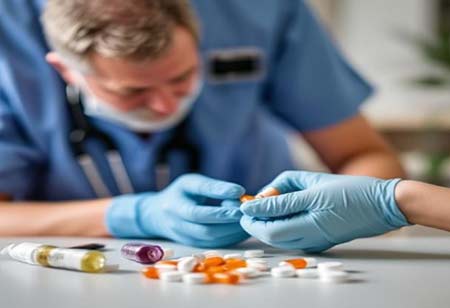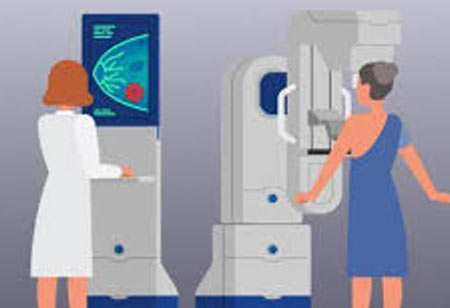The Changing Landscape of Addiction Treatment in Europe

By
Medical Care Review | Tuesday, April 01, 2025
Stay on top of your health and well-being with exclusive feature stories on the top medical clinics and treatment centers, expert insights and the latest news delivered straight to your inbox. Subscribe today.
Addiction rehabilitation and detox centers across Europe play a vital role in supporting individuals on their path to recovery from substance dependence. These facilities have evolved into modern, patient-centric environments, prioritising evidence-based treatments and holistic care to foster long-term sobriety and improved well-being. As demand for these services increases, the industry continues to innovate, adapting to the changing needs of diverse populations.
The number of rehabilitation and detox centers in Europe has grown significantly, driven by government and private sector investments. Western Europe has witnessed extreme expansion, with many facilities integrating their services into public healthcare systems. Meanwhile, private centers in countries such as Switzerland, the United Kingdom, and Spain have gained recognition for offering specialised and luxury treatment options, catering to clients who seek personalised care.
In Eastern Europe, growth is fueled by affordability and high-quality care, attracting international clients seeking cost-effective, reputable rehabilitation services. The increasing connectivity between centers across regions enhances accessibility, ensuring that individuals can receive local and transnational support.
Evidence-Based Therapies and Best Practices
European rehabilitation centers are at the forefront of evidence-based addiction treatment. Clinical interventions incorporating cognitive-behavioral therapy (CBT), dialectical behavior therapy (DBT), and medication-assisted treatment (MAT) have demonstrated significant efficacy in supporting recovery. Additionally, structured therapeutic programs—encompassing individual counseling, group therapy, family therapy, and peer support—provide a comprehensive approach to treatment.
A growing emphasis on trauma-informed care is addressing the underlying psychological factors that contribute to addiction. Personalised treatment plans, tailored to each individual’s mental and physical needs, are now standard practice, reflecting advancements in mainstream medical and psychological care.
Holistic Approaches to Recovery
The integration of holistic therapies has transformed addiction treatment into a multidimensional recovery process that nurtures physical, mental, and emotional well-being. Many European rehabilitation centers incorporate practices such as yoga, mindfulness meditation, art therapy, and equine-assisted therapy. These approaches help individuals develop coping mechanisms, manage stress, and gain self-awareness.
Nutritional support also plays a critical role in recovery, with facilities emphasising balanced diets that aid physical healing. Additionally, customised exercise programs enhance overall health, assist with withdrawal management, and promote resilience during recovery.
Technological Advancements in Addiction Treatment
Technological innovation is reshaping addiction rehabilitation across Europe, increasing accessibility and effectiveness. Telehealth services, including virtual therapy sessions, progress-tracking apps, and medication reminders, provide continuous support, helping individuals stay engaged in their recovery journey. Virtual peer support forums further enhance connectivity and motivation.
Wearable health technology is also being integrated into treatment programs, allowing clinicians to monitor physiological and psychological indicators in real time. By detecting early signs of distress, these tools enable timely intervention, improving patient outcomes and reducing the risk of relapse.
European addiction treatment centers operate under stringent healthcare regulations that ensure the highest standards of care. Facilities must meet rigorous certification requirements and employ qualified professionals, including addiction specialists, psychologists, and medical experts.
Governments, professional bodies, and accreditation agencies collaborate to uphold quality standards and foster continuous improvements in treatment protocols. This commitment to excellence guarantees that individuals receive safe, effective, and ethical care throughout their recovery journey.
Efforts to make rehabilitation services more inclusive have led to the development of tailored programs that accommodate diverse populations. Facilities now offer specialised services for adolescents, older adults, and the LGBTQ+ community. Additionally, multilingual and culturally competent staff improves accessibility for international clients.
Flexible treatment options, including outpatient programs, ensure that individuals with work or caregiving responsibilities can receive the support they need without disrupting their daily lives. By removing barriers to treatment, these initiatives make recovery more attainable for a broader demographic.
Seamless Transition to Post-Detox Care
A defining strength of European addiction treatment centers is their commitment to long-term recovery through structured aftercare support. Upon completing detox and rehabilitation programs, individuals benefit from continued outpatient therapy, access to peer support groups, and long-term counseling services.
Collaboration with community organisations further facilitates reintegration into society, offering housing assistance, educational programs, and vocational training. This comprehensive ecosystem strengthens recovery outcomes and empowers individuals to build fulfilling, substance-free lives.
Sustainability and Eco-Conscious Rehabilitation
Sustainability has become a growing priority within the addiction treatment industry. Many European centers are adopting eco-friendly practices, including waste reduction initiatives, renewable energy use, and nature-based therapy settings that promote tranquility and healing.
Digital advancements, such as electronic medical records and e-prescriptions, further reduce the sector’s environmental footprint. These sustainable initiatives align with holistic treatment principles, fostering a recovery environment that supports individuals and the planet.
In Europe, addiction rehabilitation and detox centers continue to evolve, combining evidence-based treatments, holistic care, and technological advancements to enhance recovery outcomes. With a strong emphasis on quality, inclusivity, and sustainability, the industry remains at the forefront of global addiction treatment. By prioritising personalised and accessible care, these centers offer individuals a renewed sense of hope and a pathway to long-term recovery.







